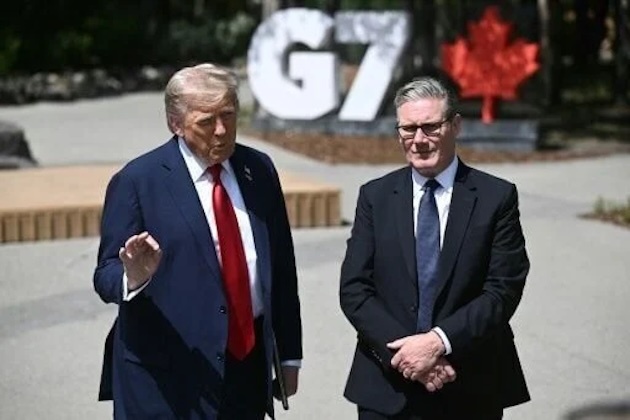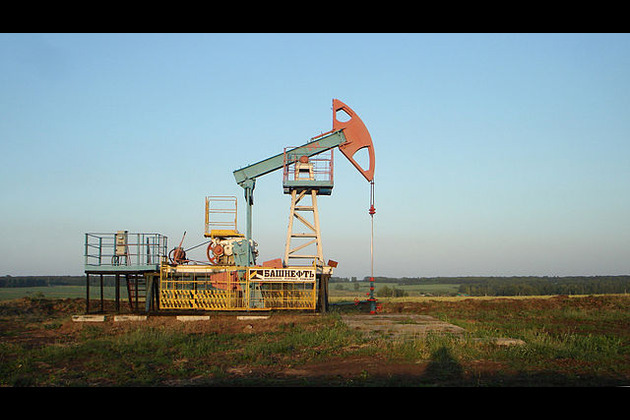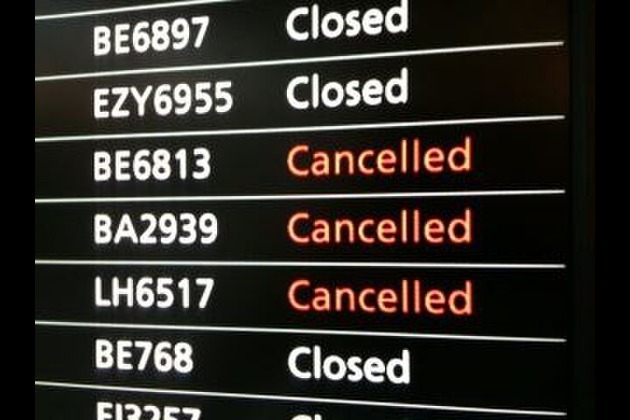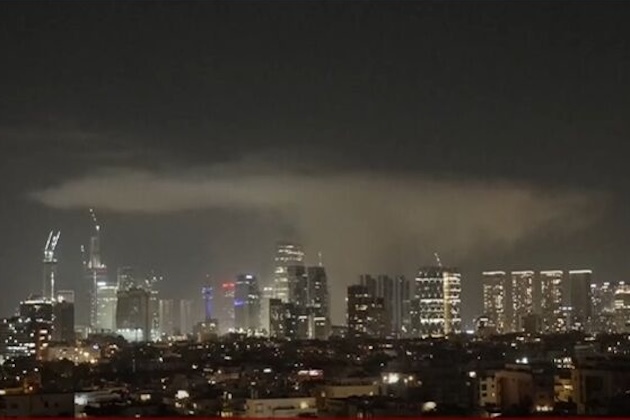Israel's air strength is giving it a free hand over Iran
The Conversation
17 Jun 2025, 12:37 GMT+10
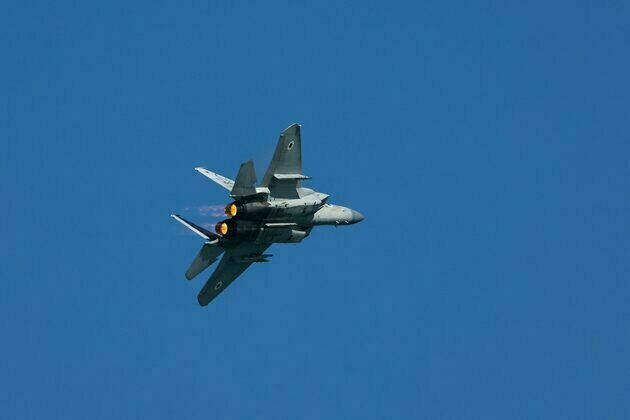
Israel's initial attack on Iranian nuclear and military facilities, alongside its assassination of top military officials and nuclear scientists, on June 13 has been followed by days of escalating strikes. Iran threatened "severe punishment" and quickly launched what were, in relative terms, smaller-scale missile attacks against Israeli territory.
Israel's military then expanded its assault on Iran, with the Israeli defence minister, Israel Katz, saying "Tehran will burn" if Iran's supreme leader, Ayatollah Ali Khamenei, "continues to fire missiles at the Israeli home front". Israel hit dozens of targets in the Iranian capital, Tehran, on June 15, and has since issued evacuation orders for significant areas of the city.
The exchange of attacks has put the varying military and defensive capabilities of Israel and Iran on stark display. In particular, it appears that Israel has been able to exercise a high degree of air superiority over Iran.
Israel was able to use more than 200 manned aircraft in its initial attack, with its air force reportedly suffering zero casualties. Within 48 hours of starting the conflict, Israel said it had gained control of the skies above Tehran.
Get your news from actual experts, straight to your inbox. Sign up to our daily newsletter to receive all The Conversation UK's latest coverage of news and research, from politics and business to the arts and sciences.
This superiority has largely been gained through concerted efforts over the past year to destroy or degrade Iran's air defence systems. In October 2024, for example, Israeli strikes targeted air defences protecting Iranian oil and gas facilities as well as those defending sites linked to Tehran's nuclear programme and ballistic missile production.
With a weakened air defence system, the Iranian military has been less able to prevent missile attacks and Israeli aircraft from entering its air space. This has given the Israeli military greater freedom of action in terms of the targets it chooses to attack - and greater freedom of choice when planning operations.
Israeli aircraft have been dropping bombs from within Iran, instead of relying on long-range missiles. Iran, on the other hand, has been restricted to using its arsenal of missiles to strike Israel from distance.
Israel's prime minister, Benjamin Netanyahu, made reference to the strategic importance of this aerial superiority on June 16. While confirming evacuation orders for the Iranian capital, he said: "The Israeli air force controls the skies over Tehran. This changes the entire campaign."
Netanyahu later did not rule out killing Khamenei, saying it would "end the conflict". Katz repeated the threat the following day, warning Khamenei of a "fate similar to Saddam Hussein".
Iran has been far less effective than Israel in its response - which is no great surprise. Israel says it has destroyed "one-third" of the surface-to-surface missile launchers possessed by Iran. And the majority of the missiles and drones that have been fired by Iran into Israeli territory have been intercepted before striking their targets.
But the strength of Israel's so-called iron dome air defence system has, somewhat counter-intuitively, also offered Iran some advantages. In order to maintain the Iranian regime's own internal security and stability, as well as its wider political aims of being a regional power, Tehran had to respond with a certain level of force.
However, Iran is also fully aware of the protection the iron dome provides to the Israeli population. The Iranian government will still be able to point to the few missiles and drones that have reached their target, and the destruction they have caused, as evidence that it is able to project its power beyond its own borders and respond in the face of aggressive Israeli action.
It is able to do so in the knowledge that the level of destruction and deaths of Israeli civilians, which so far stands at around 24 people, will be limited to such a degree that any further escalation by Israel will be seen as unjustified by the wider international community.
However, as the destruction and death toll rises, it will become harder for either government to follow this path of logic. Iran has already criticised the Israeli military's claim that it has conducted strikes in a precise manner and only against military targets, reporting that over 200 civilians have been killed in the strikes.
It is here where mistakes and missteps could see events spiral out of control. This may lead to a wider and larger-scale conflict that neither side wants but is unable to prevent occurring. Iran, for its part, is reportedly signalling that it is seeking an end to hostilities and the resumption of talks over its nuclear programme.
If the conflict does escalate, Israel will probably target Iranian military production facilities. The Israeli military has already issued a warning on social media, telling the Iranian people to stay away from all weapons manufacturing facilities.
Other targets may include nuclear installations - though at least one, the heavily fortified Fordow nuclear site in central Iran, will not be targeted. Fordow is hidden in a mountain, with centrifuges located possibly as deep as 80 metres underground.
Only the US military has the hardware capable of reaching this facility, so attacking the site would require US intervention. This is something the current Washington administration has proved reluctant to do, so far.
But any escalation could have ramifications beyond the Middle East. Iran has supplied Shahed-type drones to Russia for use in its war in Ukraine, with them becoming a key part of Russia's military strategy. However, Russia is now largely producing its own supplies of Shahed drones internally.
A much more likely effect is the prolonging of the war in Ukraine as international attention shifts to de-escalating tensions between Israel and Iran. The international community has focused on trying to prevent further attacks, with the US president, Donald Trump, advocating for talks rather than more strikes.
On June 15, Trump wrote on his social media platform, Truth Social: "Iran and Israel should make a deal, and will make a deal, just like I got India and Pakistan to make." Whether Israel and Iran take heed of his request will become clear over the coming days and weeks.
 Share
Share
 Tweet
Tweet
 Share
Share
 Flip
Flip
 Email
Email
Watch latest videos
Subscribe and Follow
Get a daily dose of Iran Herald news through our daily email, its complimentary and keeps you fully up to date with world and business news as well.
News RELEASES
Publish news of your business, community or sports group, personnel appointments, major event and more by submitting a news release to Iran Herald.
More InformationBusiness
SectionNippon Steel deal requires US security agreement
WASHINGTON, D.C.: This week, President Donald Trump signed an executive order that facilitates Nippon Steel's potential investment...
Spotify, Discord disrupted by brief Google service glitch
MOUNTAIN VIEW, California: On June 12, Google announced that it had fixed a temporary global service disruption that impacted several...
U.S. stocks forge ahead despite Mideast turmoil
NEW YORK, New York - U.S. stock markets closed in positive territory Monday despite the raging war in the Middle East which has killed...
Foxconn iPhone exports from India now mostly headed to the US
NEW DELHI, India: Amid mounting U.S.-China trade tensions, Apple has sharply increased iPhone shipments from India to the United States,...
US: China lags in AI chips, but catching up fast
WASHINGTON, D.C.: The U.S. government estimates that Huawei will only be able to manufacture up to 200,000 advanced AI chips next year—well...
Chime soars in debut, giving fintech sector a much-needed boost
SAN FRANCISCO, California: After months of muted IPO activity in the fintech world, digital bank Chime Financial reignited investor...
Middle East
SectionTrump leaves G7, calls for evacuation of Iran's capital
CALGARY, Alberta, Canada - U.S. President Donald Trump has announced he is leaving the G7 summit after just one day, and after refusing...
Crude spikes as Israel-Iran conflict reignites supply concerns
HOUSTON, Texas: Crude oil surged to multi-month highs this week, driven by escalating tensions in the Middle East after Israel launched...
Airlines reroute planes after Israeli strikes spark airspace chaos
SEOUL/LONDON: A wave of flight cancellations and diversions swept across the airline industry on June 13 after Israel launched strikes...
U.S.-China trade progress lifts oil prices to multi-week peak
LONDON, UK: Crude prices surged this week as investors welcomed fresh signs of progress in U.S.-China relations, lifting hopes of reduced...
UN nuclear authority 'deeply concerned' about attacks on Iran's nuclear plants
NEW YORK, New York - The head of the International Atomic Energy Agency (IAEA) says it is deeply concerning that Israel is carrying...
Sirens sound across Israel as Iran launches drones and missiles
TEL AVIV, Israel - Israel has suffered casualties as Iran fights back from the Jewish state's unprecedented unilateral attacks which...







